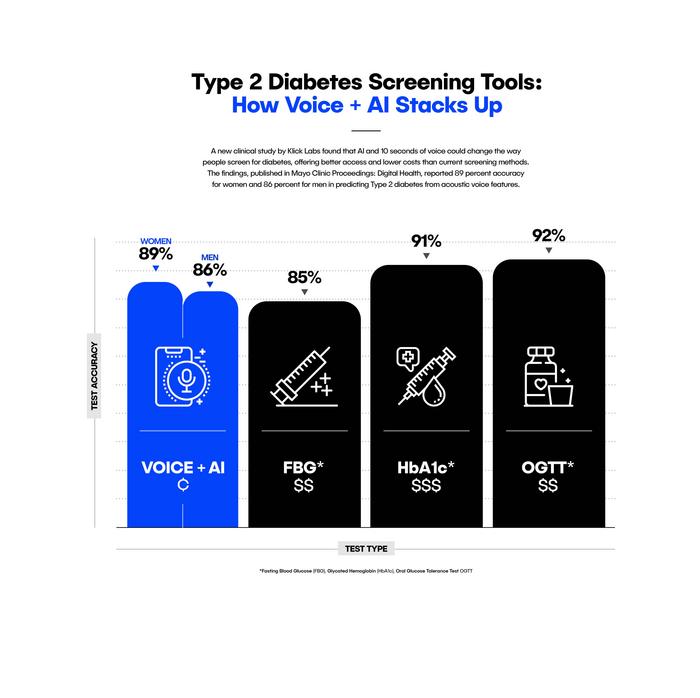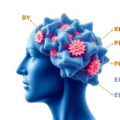
In recent years, the field of genomics has witnessed remarkable advancements driven by the integration of artificial intelligence, particularly deep learning, with traditional genetic analyses. Among the most promising applications is the enhancement of polygenic scores, which estimate an individual’s susceptibility to various diseases by aggregating the effects of numerous genetic variants. A groundbreaking study published in Nature Communications by Kelemen, Xu, Jiang, and colleagues in 2025 has pushed the boundaries of this approach by rigorously evaluating the performance of deep-learning-based methods for improving polygenic risk prediction. Their work offers novel insights into how cutting-edge computational techniques can transform personalized medicine and public health genomics.
Polygenic scores have revolutionized our ability to quantify inherited risk for complex traits and diseases by synthesizing information across millions of common genetic variants. Traditional methods to compute these scores often rely on linear models, which may fail to capture intricate genetic architectures involving interactions among variants or nonlinear effects. The research team sought to address these inherent limitations by employing various deep-learning frameworks capable of modeling complex patterns within high-dimensional genomic data. Their objective was to determine whether these sophisticated models could outperform existing approaches and deliver more accurate and clinically actionable polygenic scores.
The core of their investigation involved designing and training multiple deep neural network architectures on extensive genome-wide association study (GWAS) datasets. These networks included convolutional layers to identify local sequence patterns, fully connected layers to integrate signals across the genome, and attention mechanisms to prioritize relevant genomic regions. The models were rigorously validated using independent cohorts, ensuring robustness against overfitting and generalizability across populations. By comparing performance metrics such as predictive accuracy, area under the receiver operating characteristic curve (AUC), and calibration scores, the authors provided a comprehensive benchmark of state-of-the-art methods.
.adsslot_gQLIAt0zJC{width:728px !important;height:90px !important;}
@media(max-width:1199px){ .adsslot_gQLIAt0zJC{width:468px !important;height:60px !important;}
}
@media(max-width:767px){ .adsslot_gQLIAt0zJC{width:320px !important;height:50px !important;}
}
ADVERTISEMENT
One of the most striking findings was that deep-learning-based models demonstrated consistent improvements in predictive accuracy relative to canonical polygenic scoring techniques, especially for traits with complex genetic underpinnings. Diseases such as type 2 diabetes, coronary artery disease, and various psychiatric disorders exhibited enhanced risk stratification when analyzed through these neural networks. The study underscored that the capacity of deep learning to capture nonlinear relationships and higher-order interactions among variants was key to this superior performance. Moreover, the interpretability modules integrated within the models enabled the identification of biologically meaningful variant clusters, providing mechanistic insights that were previously elusive.
The researchers also tackled the challenge of computational efficiency and scalability, which are critical for clinical adoption. Training deep neural networks on genomic-scale data is notoriously resource-intensive, but through innovative algorithmic optimizations and parallel computing techniques, the team was able to reduce training times significantly. This optimization enables the potential deployment of deep-learning-enhanced polygenic scoring in routine medical settings, where timely risk assessments could inform prevention strategies and tailored therapeutic interventions.
An important aspect of the study was the exploration of transfer learning approaches, wherein neural networks pre-trained on one trait or population were fine-tuned for another. This methodology demonstrated promising results, allowing models to leverage shared genetic architectures across phenotypes and ancestries. Transfer learning thus offers a pathway to mitigate disparities in genomic research, where underrepresented populations suffer from a lack of well-powered GWAS datasets. By enhancing prediction accuracy across diverse cohorts, deep learning can contribute to more equitable healthcare outcomes in genomic medicine.
Despite these advancements, the authors acknowledge several limitations and areas for future research. For instance, while deep learning models improve polygenic score accuracy, they still depend on the quality and diversity of the underlying GWAS data. Phenotypic heterogeneity, environmental confounders, and gene-environment interactions remain challenging to incorporate fully. The study calls for integrating multi-omics data, longitudinal health records, and environmental metrics to construct more holistic risk models. Additionally, the interpretability of deep learning remains an ongoing technical and ethical concern, necessitating transparent model designs and validation protocols to foster clinical trust.
The societal implications of improved polygenic scoring using deep learning are profound. By enabling earlier and more precise identification of individuals at heightened genetic risk, healthcare systems can implement targeted screening programs and preventive lifestyle modifications. Such proactive approaches could reduce the burden of chronic diseases and improve population health outcomes. Moreover, these models can aid drug discovery by pinpointing genetic pathways most strongly linked to disease risk, accelerating the development of novel therapeutics. However, ethical considerations surrounding genetic privacy, data security, and potential discrimination must keep pace with these technological innovations.
Kelemen and colleagues’ work exemplifies the power of interdisciplinary collaboration, blending genomics, machine learning, and biomedical science to address one of the most complex challenges in human health. Their rigorous benchmarking framework sets a new standard for evaluating polygenic score methodologies, encouraging transparency and reproducibility in this fast-evolving research domain. Their public release of trained models and code repositories further democratizes access to these tools, facilitating broader adoption and iterative improvements by the scientific community.
Looking ahead, the integration of deep learning into polygenic risk modeling opens new horizons for precision medicine. The ability to untangle the multifaceted genetic basis of disease at scale promises unprecedented insights into pathogenesis and individual variability. As biobank-linked cohorts expand globally and computational resources continue to grow, we anticipate a proliferation of ever more nuanced and powerful models that transcend current limitations. The synergy of genomic data and artificial intelligence heralds a transformative era, wherein preventive healthcare is predictive, personalized, and participatory.
In summary, the 2025 study by Kelemen, Xu, Jiang, and colleagues represents a landmark contribution to the genomics community and beyond. By rigorously demonstrating the tangible benefits of deep-learning techniques for polygenic score enhancement, this research paves the way for more accurate genetic risk prediction tools. These advancements not only deepen our biological understanding but fundamentally reshape how we approach disease prevention, diagnosis, and treatment in the 21st century. As we stand on the cusp of widespread clinical translation, this work exemplifies the profound impact that AI can have when thoughtfully harnessed in biomedicine.
The continued convergence of machine learning innovation and genomic science, as epitomized by this study, ensures that the future of predictive health is both data-driven and deeply human-centric. Ultimately, empowering individuals and clinicians with precise genetic insights derived from sophisticated deep-learning models will be a cornerstone of next-generation healthcare systems worldwide. The implications for extending healthy lifespans and alleviating disease burdens are immense. This pioneering research marks a critical milestone on that transformative journey.
Subject of Research: Deep-learning approaches to enhance polygenic risk scores for disease prediction.
Article Title: Performance of deep-learning-based approaches to improve polygenic scores.
Article References:
Kelemen, M., Xu, Y., Jiang, T. et al. Performance of deep-learning-based approaches to improve polygenic scores. Nat Commun 16, 5122 (2025).
Image Credits: AI Generated
Tags: advancements in public health genomicsAI in genetic analysiscomplex trait predictioncomputational techniques in medicinedeep learning frameworks for geneticsdeep learning in genomicsgenetic variant interactionshigh-dimensional genomic data analysisnonlinear effects in geneticspersonalized medicine with AIpolygenic risk prediction accuracypolygenic score enhancement









No Comments
Leave a comment Cancel